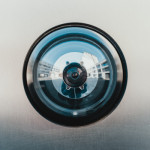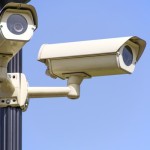Protect Your IP Surveillance System
These days, IP security cameras are much easier to use and are more commonly utilized for home security. Whether home owners want to watch their property or their pets, IP security cameras seem to be the surveillance solution of choice.
Unfortunately, these home security systems are often targeted by hackers and bots. To better safeguard your IP cameras and privacy, check out these helpful IP security camera tips.
Update Firmware
Modern IP security cameras provide user-upgradeable firmware. When a security vulnerability is found, the manufacturer will fix it by issuing a firmware update. If your cameras are operating with an older version, they may be vulnerable to exploitation from hackers or online voyeurs. Always be sure that your firmware is up to date and routinely check for updates to protect your system.
Keep Cameras Local
The concept is simple – If you are worried about your live feed ending up on the internet, do not connect your cameras to the internet.
To protect your privacy, keep your security cameras on a local network and assign them non-routable internal IP addresses (ex. 192.168.0.5 or the like). But even then, your cameras may still be exposed by camera software that sets up port forwarding or uses UPNP to expose your cameras to the internet. Make sure your cameras are set up on local-only mode – consult your installer or check the manufacturer’s website to learn how.
Assign Passwords To Cameras
All too often, users forget to add password protection on their IP cameras, and sadly, this is not usually turned on by default. Without this, IP cameras are left wide open and vulnerable.
Luckily, most cameras offer at least some form of basic authentication, and although it may not be much, it is better than nothing. Remember to protect your cameras by assigning a username and strong password and changing it periodically.
Change Defaults
We cannot stress this enough – Always, always, ALWAYS change the default usernames and password for your devices. In case you didn’t know, the default admin name and password for your IP camera is usually available on the manufacturer’s website in the support section. That said, if you don’t change these defaults, anyone could potentially access your security system, view your feeds, and control your cameras.
WPA2 Encryption
If you’re using a wireless camera, you should only connect it to a WPA2-encrypted wireless network. This will minimize the risk of wireless eavesdroppers connecting to your network and accessing your video feeds.
Be Mindful Of Locations
Don’t place IP security cameras in areas of your home that you wouldn’t feel comfortable with strangers seeing. Regardless of the security measures to protect your camera feeds, there is always a possibility of getting blind-sided by a Zero-Day vulnerability that hasn’t been found by the manufacturer yet.
Share your own tips and experiences with us on Facebook, Google+, Twitter, LinkedIn, and Pinterest. For a wide selection of IP security cameras and more, visit SecurityCamExpert.com or call 888-203-6294 today!
Transitioning From Analog Security Cameras To IP Surveillance
Upgrading your analog security cameras to IP security cameras has plenty of benefits, including improved image quality and advanced features. Most IP surveillance systems can make use of existing network infrastructure that is in good condition, decreasing costs for installation. Whether you are looking to upgrade because your analog system is reaching end-of-life for support or because your needs have changed, an IP surveillance system is a smart decision.
Now, the actual task of transitioning from analog to IP security cameras should not be taken lightly. You want to be sure that you take all things into consideration to ensure that you choose the right IP video surveillance system and that it performs sufficiently. Here are a few aspects you should not overlook:
Goals & Challenges
If you are looking to achieve ROI, you must fully understand how your IP security system will be used. Operational goals and potential challenges should be determined beforehand. Think about what types of cameras and how much resolution you need, as well as how long the footage needs to be stored and which areas need coverage. Proper planning is crucial to the success of your security system.
Budgets
No one wants to pay an arm and a leg for a mediocre surveillance system. If done correctly, you don’t need to. By defining a security budget, you can find the right cameras and video management software (VMS) to fulfill your needs and achieve your goals.
Time
As much as a quick transition sounds ideal, it is not always feasible. Understand that a proper transition will take some time, and it may be in your best interest to plan a phased migration. This will help to accommodate budget availability and operational disruptions. Prioritize which area needs immediate attention and begin there.
Storage
Going from analog to IP improves video quality, but also requires more storage. Advanced VMS can help to effectively optimize your network resources and bandwidth consumption, thus decreasing networking and storage costs over time.
Staffing
A new IP video system may need additional staffing, so you should think about this and how you will train the new and existing staff. This will impact both overall costs and ROI of your system, and may affect cameras and software selection. For example, casinos require live monitoring around the clock while parking lot surveillance may use video analytics to alert security personnel of incidents or events that need attention.
Integration
Numerous third-party integrations can help to increase the efficiency of your system as well as manage costs. While most current systems have an IP-based interface for integration, leading suppliers also have a wide range of integrations which are tested and ready to apply. These can offer functionality, automation, and other enhancements to solve project needs.
Cybersecurity
Cybersecurity is of utmost importance, especially these days. If not addressed properly, going from analog to IP opens up your system, and any indirectly connected networks, to endless vulnerabilities. Be sure to discuss your specific network safeguards, policies, and strategies with your installer. Also, enlist a new IP security system that provides the appropriate cybersecurity architecture, software, devices, and policies.
Licensing
Pay attention to licensing requirements and Software Upgrade Plans (SUPs) or Service Level Agreements (SLAs) that come with most VMS systems. These cover everything from higher tiers of support to future upgrades. For example, third-party cameras may require a license for each IP address, and these licensing requirements can add additional costs.
Environmental Conditions
These include extreme heat or cold, humidity, corrosion, and high dust levels, along with ambient light levels, existing power sources, and network infrastructure. All of these can impact which security cameras and VMS equipment are necessary for you.
Redundancy
Because your security system should be operational and accessible at all times, it is important plan provisions for redundancy and back up for primary resources in case they fail. For most systems, simple RAID-5 or -6 redundancy in storage is sufficient. However, you should also consider budgeting for “failover” recorders and other server hardware, and have spare cameras on hand in case of failure.
It is only a matter of time until IP surveillance is the norm and analog security cameras are a thing of the past. But when the day comes, it is ever important to understand your security needs and what you expect from your IP surveillance system. Even a small mistake or misstep along the way can compromise your system.
Have you upgraded to an IP security camera system? Share your stories with us on Facebook, Google+, Twitter, LinkedIn and Pinterest. You can shop our selection online at SecurityCamExpert.com or call 888-203-6294 to inquire about our products, installation services, or request a free quote!
Home Security Mistakes & Tips
Making mistakes when it comes to your home security can compromise your safety, leaving you vulnerable to burglary and theft. When choosing the best home security system for you, avoid making these common security mistakes and ensure that you properly safeguard your home and loved ones.
Mistake: Buying The Wrong Home Security Systems.
There is no “wrong” home security system, however, what works for one person may not work for you. This is precisely why there are various types of security systems on the market.
In order to choose the best system for you, do your research. You want to look at different reviews from reputable sources. Search the security system you are eyeing, or the type of system you’re looking for. In addition to reviews, pay attention to any complaints from real buyers that you may come across. There may be legitimate issues that you should know about before making a purchase.
Also, these are some important features you should consider when shopping for a security system:
- Remote monitoring
- Real-time notifications
- 911 & emergency services
- Input capacity
- Ease of installation
Lastly, to help you make the right decision, and possibly save you time, you should speak with a security professional. With expert knowledge and experience under their belt, a security professional will have a better idea of which type of security will best suit your needs.
Mistake: Not Testing Your Configurations.
It is rare that one home security system is enough for all your home security needs. For added protection, some components to consider may include:
- Indoor and outdoor cameras
- Motion sensors
- Smoke detectors
- Carbon monoxide detectors
- Glass break detectors
- Door and window sensors
- Freeze sensors
- Water sensors
- Driveway sensors
Of course, these are just some of the many components you may or may not want to add to your system. Whether you have one security camera or 20 different cameras and sensors, you should test all of them to ensure proper configuration and performance. For example, you may not know that your camera is poorly positioned or that your alarm system was not properly activated.
Try simulating a break-in with a friend, family member, or your pet to determine the capabilities of your home security system. Most criminals are seasoned vets so they probably know how to bypass one of more components of your system, thus having more aspects can help to ensure they are stopped.
Mistake: Lack Of/Poor Maintenance Of Home Security System.
Your security system should be maintained on a regular basis, whether it’s weekly, monthly, semi-annually or annually – do what’s best for what you need. Maintenance can involve various things such as updating software, changing batteries, changing faulty or defective parts, and more.
Professional Maintenance
Professional maintenance can be done annually or semi-annually. You may want to check if your vendor offers any maintenance packages in the service contract. If they don’t, you can enlist the services from a home security inspection company.
The services typically consist of the following:
- Repair or replace broken parts of your home security system
- Test the control panel and all other components of your home security system
- Check that signals are sent to and received by the monitoring center
Professional maintenance ensures that there’s no guesswork in handling, fixing or replacing faulty components of your system.
DIY Maintenance
Your DIY checklist should include:
- Check/change exterior lighting to ensure clearer pictures or videos for your surveillance cameras
- Simulate intrusion to check if motion sensors will detect it or trigger the right alarm
- Test your control panel if it has a test model but if your system includes remote monitoring (which it should), inform the monitoring team to avoid starting a false alarm
- The National Fire Alarm Code requires annual inspection of residential household fire systems, but you can press the test button of your smoke detector to see if it’s functioning properly from time to time
Keep these tips in mind in order to avoid these critical mistakes when shopping for a home security system.
If you’re looking for quality CCTV surveillance systems and security cameras for smart prices, feel free to browse our stock online at SecurityCamExpert.com or call 888-203-6294 to speak with an expert today! Find the latest news and updates on our Facebook, Google+, Twitter, LinkedIn, and Pinterest pages.
Expensive Security System Mistakes
Sometimes you end up paying more than you should when it comes to home security systems. Whether it is from lack of research or sheer convenience, there are ways to effectively invest in your home security without breaking the bank. Review these common home security mistakes to ensure you are getting the most for your money.
• Mistake: Your first option was your only option.
Don’t just go with the first company you find -do your research. Check out both local and national companies to compare rates and get free quotes when possible. This step will help you discover who truly values your security versus those looking for a big sale.
• Mistake: You didn’t consider lifestyle changes.
Aside from thinking about your current needs, you should also consider your future plans. For example, if you’re planning on growing your family, you may want more surveillance in the nursery. Or, if you’re single, you may relocate a few times before settling in to a spot, so you may want to inquire about cancellation or relocation services.
• Mistake: You’re overlapping cameras.
While the idea of having multiple angles on entryways and high traffic areas sounds safer, it could be unnecessary. Focus more on getting the best angles with the least amount of cameras. This will save you money on equipment and could make it easier to manage your system.
• Mistake: You didn’t talk about discounts.
When it comes to discounts, it doesn’t hurt to ask. You could be missing out on special deals and offers, such as a Veteran or senior citizen discount, or you may even be able to work out a payment plan rather than paying it all up front.
• Mistake: You haven’t updated your insurance.
No matter what kind of equipment you choose, be sure to let your home insurance provider know. These systems may add value to your home, and could possibly save you some cash on your monthly payment. But before committing to system, you should check with your provider.
• Mistake: You have more than you need.
In relation to the overlapping cameras, you may have opted for the most comprehensive system when you really could do with a simple set up. Evaluate your needs, such as how many entry points you wish to monitor, and you can tailor your system accordingly. Remember that when it comes to security cameras, choose quality over quantity.
If you’ve made any of these mistakes, you can still make them right. If you need help, please feel free to call us at 888-203-6294. We can help with surveillance equipment, site surveys, and security camera installation. Visit SecurityCamExpert.com to browse our selection and connect with us on Facebook, Google+, Twitter, LinkedIn, and Pinterest.
Secure Your IP Security Cameras
If you haven’t already, it might be time to upgrade from analog security cameras to an IP security camera system. IP security cameras are easier to use and connect to your home network. Your surveillance feed is more readily available and can be accessed remotely, and your storage space can easily be expanded or adjusted based on your individual needs.
While there are many benefits of upgrading, IP cameras can be more vulnerable to hackers. The good news is that these issues can be combated with smart security measures. Here are some things to consider to protect your IP surveillance feed.
Firmware Updates
Keep your firmware up-to-date. Manufacturers are always watching for any system or security vulnerabilities. When one is found, they work hard to address the issue and inform their customers of the necessary firmware update. Pay close attention to these notifications so that your system is secure. Checking your camera manufacturer’s website can also help, in case you don’t receive, or happen to overlook, any notifications.
Keep Cameras Local
Plain and simple – if you don’t want your feed to end up on the Internet, don’t connect your cameras to the Internet. Keep your cameras on a local network with non-routable IP addresses (ex. 192.168.0.5 or something similar). Though, even with this measure, your cameras could still be exposed by software that sets up port forwarding or uses UPNP to expose your cameras to the Internet. Be sure to visit your camera manufacturer’s website to learn how to set them up in local-only mode.
Passwords
Any password can be better than no password at all. Most cameras do not have password protection for video feeds set on default. After you install and set up your cameras, be sure add password protection to secure your feed. Create a username and strong password, and make sure you change it periodically to increase security.
Do your cameras come with default usernames and passwords? Change them immediately after setup and installation. This is the easiest way for hackers, or anyone, to gain access to your feed.
WPA2 Encryption
When it comes to wireless cameras, the only network you should connect it to is a WPA2-encrypted wireless network. Encryption adds protection and will keep hackers away.
Placement
Think about the placement of your cameras. Only place cameras in areas inside your home that you are comfortable with being monitored. No matter how secure your system is, there is a chance a new vulnerability has not been found yet and you could become the victim. Remember, when in doubt, leave the camera out.
Connect with us on Facebook, Google+, Twitter, and Pinterest to share your own tips with your peers. Or visit us online to browse our outstanding collection of security cameras, CCTV surveillance equipment, and more. Have any questions? Feel free to contact us at 1-888-203-6294.
What Are Network IP Cameras?
Sure, you’ve heard of network IP cameras, but do you really know what they are? From the outside, network IP cameras look like your standard security camera. However, network IP cameras are much more than what meets the eye.
IP stands for “Internet Protocol” which is a practice of transmitting data across a network. In the case of network IP cameras, that data is digital surveillance video. These cameras have their own IP addresses so that they can connect directly to a network, allowing them to function in any location with a network connection.
Network IP cameras are connected to a router through an Ethernet cable, which enables two-way communication between the computer and camera. Because the cameras record in digital format, there is no need to convert from analog to digital, allowing for faster transmission. One of the biggest draws of network IP cameras is their capacity to deliver much higher resolution images than analog cameras.
Network IP cameras require Network Video Recorders, or NVRs, to record and store data. NVRs allow you to manage and store your recordings on your computer. Because network IP cameras require lots of bandwidth, other IP technology exists where everything can be processed within the camera itself. Attaching an external hard drive device allows you to store data, while removing the need for an NVR and eliminating bandwidth usage.
Along with the versatility of being installed wherever a network connection is available, these cameras allow live feed access from remote locations. Remote surveillance provides an added sense of security as you can check in on your feed at any time.
If you’re looking for an excellent IP camera, look no further than our Grandstream GXV3672-HD 2MP HD IR IP Camera. For a limited time only, we’re offering this excellent, feature rich IP camera for the low price of $189! This bullet IP camera boasts a 1.2 Megapixel CMOS sensor and HD lens with integrated Power-over-Ethernet (802.3af). With embedded video analytics and SIP/VoIP support, along with support for motion detection and notification on PC client, and a low sale price, this network IP camera is a steal!
For more information on our Grandstream GXV3672-HD 2MP HD IR IP Camera, please contact us at 1-888-203-6294. You may also browse our selection of network IP cameras, NVRs, and more online at SecurityCamExpert.com. Connect with us on Facebook, Google+, Twitter, or Pinterest.
Tips To Secure Your Security Camera System
By now, you may have heard of the website that hacks into various security camera feeds that have not changed the default names and passwords for their systems. The supposed goal of the site is to “show the importance of security settings” by making various business and home security camera footage available to Internet users.
As disturbing as this website is, it is important to get the word out on how to secure your IP security camera system. Use these tips to keep your private security camera system private.
Change The Default Admin Name And Admin Password
If you haven’t already, please change your account names and passwords. As previously stated, the security cameras were accessed because users failed to change the default names and passwords, allowing anyone with internet access and patience to login to their accounts. Keep password requirements on and choose strong passwords. Try to use different passwords for every account, with 10 or more characters including upper and lower case letters, numbers and symbols. The stronger the password, the harder it will be to hack into your system, keeping your business or home safe from strangers’ eyes.
Keep Each IP Camera Secure
Connect your IP cameras to your local network and assign non-routable internal IP addresses. For help with this, you may need to contact your IP camera manufacturer. Take it a step further by password protecting each camera as well. You may need to manually turn this feature on after set-up. It may be tough to keep track of all your passwords, but it will be worth it to keep your surveillance feed secure.
Read The Fine Print
Be sure that your system uses encryption to protect your data, especially if you’re using wireless cameras. Encrypted data provides yet another measure to protect against hackers. Also, be sure the website in which you access your live feed begins with “https” vs. “http” as the former possesses added protection.
Keep Firmware Up-To-Date
Keep an eye out for firmware updates as they address any vulnerability issues that may arise. If you miss an update, your system may be susceptible to prying eyes. Your manufacturer will likely post alerts on their website, so you may choose to subscribe to their website or set personal reminders to periodically check for updates yourself.
Be Mindful Of Security Camera Placement
Place cameras in locations you wouldn’t mind strangers seeing. Don’t place them in areas that would make you feel uncomfortable or where there is an expectation of privacy. In the unfortunate event that your system becomes compromised, you’ll at least know what people can and cannot see.
As we implement security measures in the form of security cameras and systems, it is always wise to secure these devices as well. Security cameras help us conveniently monitor our properties while we’re away, but if the wrong people gain access, not only does it violate our privacy, but we can become targets. Prevent hackers from gaining access by utilizing the tips mentioned above.
Do you have any other tips or personal experiences to share? Help your peers by sharing with us on our social networks – Facebook, Google+, Twitter, and Pinterest.
Your safety is important to us. For the best affordable, high quality security cameras, visit us online at SecurityCamExpert.com. To speak with us directly, you can call us at 1-888-203-6294. Our offices are open Monday-Friday 8am-5pm.



